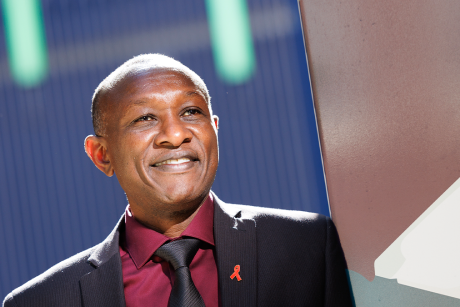Along with partners at Peking University in China, the Duke Global Health Institute and Duke Clinical Research Institute are working to train Chinese physicians in stroke-focused clinical research. Stroke is a leading cause of death in China, and through this program, more Chinese physicians will be better equipped to contribute to the prevention and treatment of this health issue in their country.
 |
| Weiping Sun |
 |
| Xun Tang |
With the leadership of Daniel Laskowitz, DGHI affiliate member and associate professor of neurology at the Duke Medical Center, the five-year clinical research training program is hosting Chinese physician scientists at Duke to build their research skills and collaborate with Duke researchers on stroke-related projects.
Now in its second year, the program has welcomed three PKU physician scientists to Duke. In 2011, Duke hosted Chinese physician Wei Sun who began a research program on the risk factors and progression of intracranial hemorrhage, a type of stroke that involves bleeding within the skull. This type of stroke is more common in China, and researchers are trying to find out why. As a result of Sun’s time at Duke, she and Duke neurologist Michael Luke James are lead authors on a paper that will be published later this year.
As a continuation of this research, visiting scholars and trainees Weiping Sun and Xun Tang from PKU are currently investigating the possible genetic, cultural or dietary factors that may be contributing to intracranial hemorrhage in rural China. One of the goals of this stroke research is to help inform a more equitable distribution of health care resources, with greater access for high-risk individuals.
Tang and Sun will be at Duke for two years, during which time they will also complete a Master of Health Sciences in Clinical Research.
“Sun and I are glad to have this opportunity to work with researchers across disciplines and from all over the world,” said Tang. “Upon completion of the program, we will be actively involved in Peking University research activities in collaboration with Duke and Peking University faculty mentors.”
Additional Chinese physician scientists will be recruited in the final three years of the program. In addition to the Master of Health Sciences in Clinical Research offered through DCRI, participants will also have the option of completing a Master of Science in Global Health, which is offered through DGHI.
“Our hope is that the five-year grant will become the foundation for future Duke-Peking University collaborations on stroke and cardiovascular disease research,” said Laskovitz. “With training in areas such as ethics, trial design and biostatistics, we believe the training program can help build capacity within China for more robust research related to stroke, which has become a major health concern in this population.”
The clinical research training program was spearheaded by DGHI Founding Director Michael Merson. It is funded by the Fogarty International Center at the National Institutes of Health.



